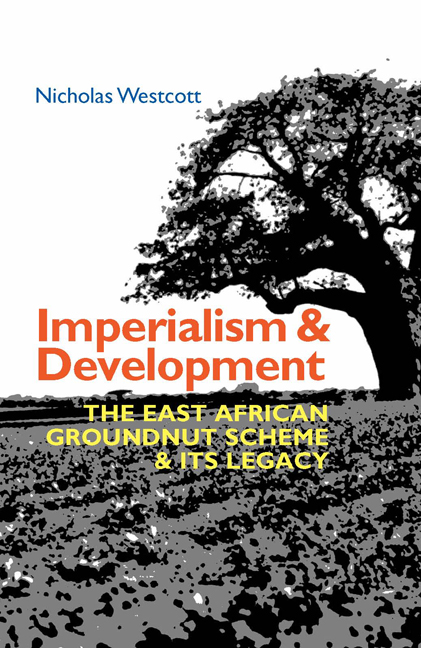Book contents
- Frontmatter
- Dedication
- Contents
- List of Illustrations
- List of Abbreviations
- Miscellaneous Frontmatter
- Preface and Acknowledgements
- Map
- Introduction
- 1 Austerity
- 2 A Scheme is Born
- 3 ‘The Poison of the Official Pen…’
- 4 The Groundnut Army
- 5 Beating about the Bush
- 6 The Overseas Food Corporation
- 7 1949: The Crisis
- 8 The Last Chance
- 9 A Sudden Death
- 10 Legacy and Lessons
- Bibliography
- Index
- Eastern African Studies
6 - The Overseas Food Corporation
Published online by Cambridge University Press: 26 May 2022
- Frontmatter
- Dedication
- Contents
- List of Illustrations
- List of Abbreviations
- Miscellaneous Frontmatter
- Preface and Acknowledgements
- Map
- Introduction
- 1 Austerity
- 2 A Scheme is Born
- 3 ‘The Poison of the Official Pen…’
- 4 The Groundnut Army
- 5 Beating about the Bush
- 6 The Overseas Food Corporation
- 7 1949: The Crisis
- 8 The Last Chance
- 9 A Sudden Death
- 10 Legacy and Lessons
- Bibliography
- Index
- Eastern African Studies
Summary
As work in Africa under the Managing Agents fell further and further behind, in London John Strachey determined to speed up the transfer of the scheme's management to the public corporation which Cabinet had agreed should be established to run it. This was no mean task, requiring the passage of the necessary implementing legislation through Parliament, and the selection of a suitably qualified management team. Both reveal much about how the post-war Labour Government, and John Strachey personally, worked.
Above all, it forced the Labour Government to come face to face with the question of what exactly they were trying to do in developing Britain's colonial territories, and where the balance lay between benefit to the imperial power and benefit to the African people. Naturally, as we have seen, the Government asserted that it would benefit both. But to assert that something is true does not necessarily make it so. Then, as now, putting something into legislation tends to pinpoint the ambiguities that politicians so often prefer to slide over.
The Overseas Resources Development Act: development or exploitation?
Strachey's objective was to get legislation establishing a public corporation to run the Groundnut Scheme through Parliament as swiftly as possible, but it immediately raised both wider questions of principle that needed to be resolved first, and became entangled with the Colonial Office's ambition to create their own corporation to pursue more commercial forms of colonial development than were permitted under the Colonial Development and Welfare (CD&W) Act of 1940.
For some time the Colonial Office had been dissatisfied with the limitations imposed on their efforts to develop the African territories by the CD&W Act. They wanted something that would be more flexible, less bound by Treasury rules, and able to mobilise larger sums of money. The CD&W funds were being spent predominantly on the provision of basic social services, and public works and utilities, not on what would be considered ‘productive’ projects to increase the supply of foodstuffs, raw materials and other commodities, nor to initiate genuine industrial development.
- Type
- Chapter
- Information
- Imperialism and DevelopmentThe East African Groundnut Scheme and its Legacy, pp. 114 - 131Publisher: Boydell & BrewerPrint publication year: 2020

